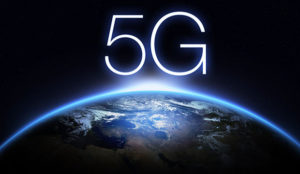
The members of the Big Four record label cartel have succeeded in characterizing 6,952 very ordinary Americans — many of them students and children — as hardened thieves and criminals who rob the beleaguered music industry and its financially hard-pressed contracted artists and support staff of what’s rightfully theirs.
But the labels aren’t beleaguered. Nor are their artists or support staff hard pressed beyond difficulties caused by their employers’ ways of doing business.
The record cartel and movies studios claim to be in the same boat, saying that compression technologies allow people to make easy-to-download copies of their product, depriving them of billions of dollars in revenues. Were it not for these compressed music and movie files, these same people would otherwise be spending money on product instead of sharing it online for free, they say.
Compression Anxiety
MPEG, is a kind of compression technology used to shrink video and audio files, and MP3 means MPEG layer 3 audio.
When you listen to a CD, you hear a high-quality, faithful reproduction of the original music. But a CD is huge and nearly impossible to handle online by normal means, although that’s changing. An MP3, on the other hand, has been compressed, but in the process data disappears. The greater the compression, the greater the diminution in quality. Consequently, an MP3 is an inferior version of the original.
An MP3 is fine for a portable MP3 player with headphones or for computer speakers, but it’s not much good for high-quality, high-fidelity systems such as home stereos. And yet the music industry claims that every time someone downloads an MP3, it’s being deprived of sales.
If people weren’t sharing music on the P2P networks, goes the corporate thinking, they’d be buying music industry MP3s. But how an MP3 track download equals a lost sale has never been explained. And although it may just be possible to argue that a single high-fidelity CD track might be worth 30 or 40 cents, there’s no way on earth an MP3 is worth more than a few pennies.
Same for Movies
And what applies to a music MP3 also applies to a compressed movie file of the type found on the P2P networks where, claims the MPAA (Motion Picture Association of America), file sharers are robbing the major movie studios of billions of dollars by sharing compressed movies online.
However, where a music file has a certain amount of quality, the same can’t be said for a P2P movie.
The seven big studios deliberately give the impression that faithful reproductions of their feature films are being shared over the P2P networks. But that’s nonsense.
Shared movies tend to be in one of two categories: larger movies — say 600 or 700 MB — with reasonable quality but often with sound or pixel explosion problems; or small files sometimes split in two or three sections, each of 120 to 200 MB, with bad color, little or no contrast, and pixel explosions.
On top of that, it can take hours — and sometimes days — to download one film.. How many people will bother? And yet, the studios claim these downloads are costing them huge revenue losses.
But what’s actually happening is this:
Try Before Buy
Before MPEG, people relied on trailers and critics for an idea of whether or not a movie was worth paying good money to see, or a record was worth buying. Now they can, and do, sample entertainment industry wares in depth and in detail before spending.
MPEGs represent a kind of 21st-century quality control, and they mean the entertainment industry can no longer get away with passing off low-quality, over-priced product with impunity.
File sharing and file sharers aren’t responsible for entertainment industry problems: Poor product quality and outdated business models are.
Nor are file sharers crooks. The real criminals are making a fortune through fake and counterfeit product. But they’d be largely out of business without the physical product the labels, studios and software makers churn out in their billions for the hard-core organized criminals to dupe and copy.
So wouldn’t the labels and studios be far better off using digital technologies and P2P networks to store, promote and sell their already digitized outpourings? They’d reduce overhead, slash physical production, and packaging and all kinds of other costs, and the vast amounts of money they spend on enforcement efforts would be cut dramatically.
Well, probably. But without CDs, DVDs and associated equipment such as burners, players, blanks, recording equipment, camcorders and all the other gear associated with the production of film and music product, Sony, for one — which makes and sells a substantial part of the aforementioned equipment while bemoaning file sharing — would be in dire straits.
Legal Threats
Gaining control of P2P and the P2P networks is essential for the entertainment industry’s expansion plans in this 21st century, and the studios and labels have a staggering number of bills going through Congress.
They know not every bill will pass, but they’re counting on volume to ensure enough will get through to give them control of what people see, hear and do in their own living rooms
In the meanwhile, the labels, and now the studios, continue to terrorize people with the threat of legal proceedings with staggering financial penalties.
But not one of the thousands of suits launched by the RIAA (Recording Industry Association of America) has ever been heard in open court. This means a judgment as to whether or not file sharing is indeed illegal has yet to be reached. By default, and by dint of the non-stop PR, file sharing is assumed to be illegal, a dubious assumption that goes unquestioned by the mainstream media
Jon Newton, a TechNewsWorld columnist, founded and runs p2pnet.net, a daily peer-to-peer and digital media news site focused on issues surrounding file-sharing, the entertainment industry and distributed computing. p2pnet is based in Canada where sharing music online is legal.












































A quote from the story:
"An MP3 is fine for a portable MP3 player with headphones or for computer speakers, but it’s not much good for high-quality, high-fidelity systems such as home stereos. And yet the music industry claims that every time someone downloads an MP3, it’s being deprived of sales."
You’ve got to be kidding. I have a stereo that in toto represents about a $10k investment, and it’s driven entirely by MP3 files. To say that MP3 is not suitable for a home stereo is simply preposterous, and obviously stems from someone who doesn’t have much of a stereo to play those files through. Very few people can tell the difference between an MP3 file and the original CD. All my CDs are safely tucked away, having been uploaded onto twin 250gig drives. Believe me, the sound is incredible (six giant Klipsch speakers, Denon receiver, and a plain ol’ Dell computer).
It’s concerning to me to read stuff written by supposed experts that is so divergent from my own experiences. Makes me wonder what other BS is being spread around by them.